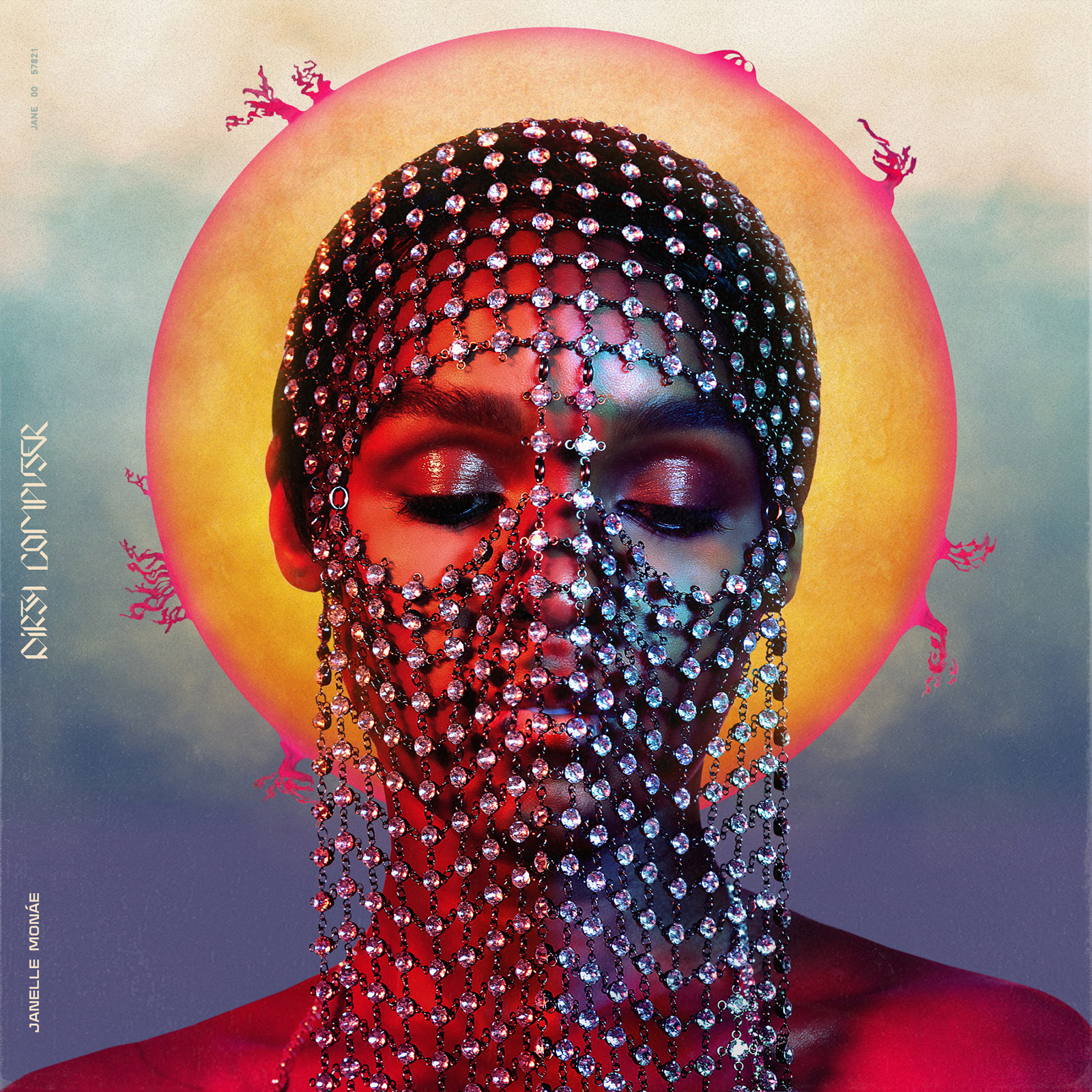Album review: ‘Dirty Computer’

(Courtesy of Bad Boy Records LLC)
"Dirty Computer"
Janelle Monae
Released Friday
Bad Boy Records LLC
By Deirdre Klena
April 28, 2018 9:28 p.m.
Janelle Monáe fans can finally take a deep look into the R&B songstress’ clever mind in the form of a defiant and bugged computer.
In Monáe’s first two studio albums she remained somewhat elusive, building a lure around an alter ego known as Cindi Mayweather, a robot revolutionary. However, five years later, Monáe has released “Dirty Computer” a work of self-expression that goes even further in its personal revelations. The album acts as a narrative for Monáe’s discovery of herself; dripping with sensuality and feminism, it reveals the vulnerability but simultaneous self-empowerment that Monáe’s previous albums have lacked.
However, she does not plunge immediately into completely confident transparency. The opening track, “Dirty Computer,” functions as a reckoning and acknowledgment of the singer’s past insecurities and fears of exposing herself. Referring to herself as a dirty computer, Monáe sings “I’m not that special, I’m broke inside.” The track also features Brian Wilson of the Beach Boys, lending it a melodious melancholy, highlighting Monáe’s possible hesitation in fully expressing herself.
The track flawlessly transitions into the next song, the uplifting “Crazy, Classic, Life,” showcasing Monáe’s own transition into a more open and confident individual. Atop bubblegum-like synth beats, Monáe sings about wanting to enjoy life and freeing herself from societal constraints, singing: “I just wanna party hard … We don’t need another ruler.” Replete with political messages, Monáe delivers an anthem-type track that rejects the notion of conformity and conservatism through clever one liners and a catchy background harmony.
Monáe further develops the non-conformist mentality in “Screwed,” which features Zoë Kravitz, a genre crossover that uses a disco-esque rhythm and funk melody to deliver somewhat overexposed notions of rebellion and new-age defiance. Lyrics like “I lost my mind to rock and roll,” and “Let’s get screwed, I don’t care” are reminiscent of age-old discontent and subsequent disobedience that at times feel tedious and a bit boring. However, the bouncy disco beats and claps makes up for the at-times trite nature of the lyrics.
Departing from traditional and accepted forms of rebellion, in “PYNK,” perhaps the album’s most provocative track, Monáe teams up with Grimes to deliver a techno-y, snapping song. It directly idolizes the female anatomy, and indirectly idolizes the idea of femininity and female solidarity.
It’s in “PYNK” that Monáe makes herself the most transparent. Having recently come out as a queer woman, it is evident in the song’s lyrics that Monáe is actively searching for herself through self-expression and self-empowerment, particularly through the avenues of sexual liberation and feminism.
The album does not shy away from political and social activism and does not try to hide or confound its messages. Rather, it begs to be analyzed and acknowledged. Monáe stays true to her musicianship, producing stunning vocals and innovative beats that make her not-so-subliminal messages more accessible to a wider audience.
The album was also released in conjunction with a complementary art film, what Monáe calls an “emotion picture,” under the same title as the album. The film is visually stunning but acts more as a background for the four music videos coming out of the album than as a completely unique complement.
Depicting a dystopian future where humans have become typecast into either good or bad “computers,” Monáe plays the lead role as a “bad computer” undergoing a debugging procedure. The film does not depart from the traditional plot of most technology-focused dystopian films, however it does stand out in its portrayal of the future as completely matriarchal.
It is clear in “Dirty Computer” that Monáe has worked up the courage to shed the protective skin of her alter-ego and reveal herself for who she is. The album is essentially a montage of her newfound confidence and an exploration of different modes of self-expression, but it is also a journey that Monáe has yet to complete. In the second to last track, “So Afraid,” Monáe sings “I’m fine in my shell, I’m so afraid … What if I lose?” A slowed tempo and gospel-like harmony create a sense of apprehension, once again revealing the vulnerable side of Monáe.
“Dirty Computer” is a triumph for the singer, revealing her ability to juxtapose acute musicianship with strong social messages while simultaneously allowing herself to be seen completely. Provocative in its approach and cleverly catchy in its hooks, “Dirty Computer” is a fun and thoughtful ride. Despite being a dirty computer, Monáe has made it clear that she doesn’t need to be fixed.


